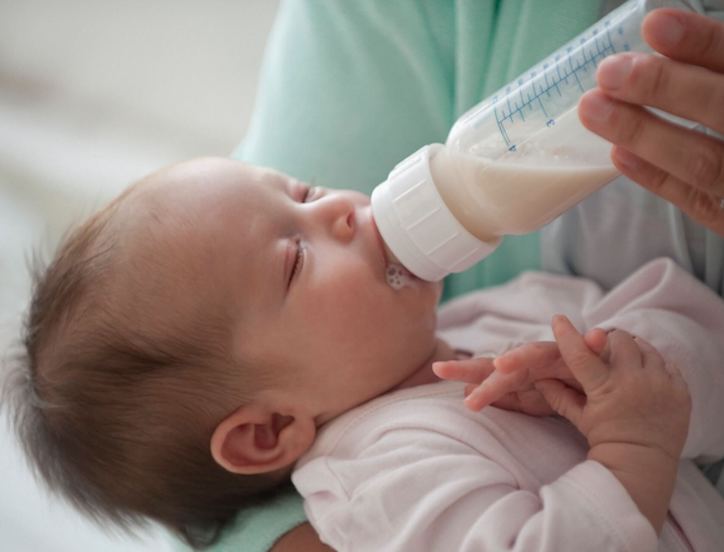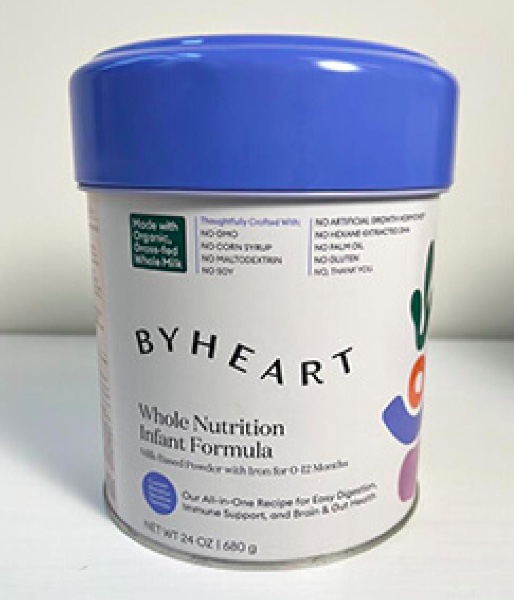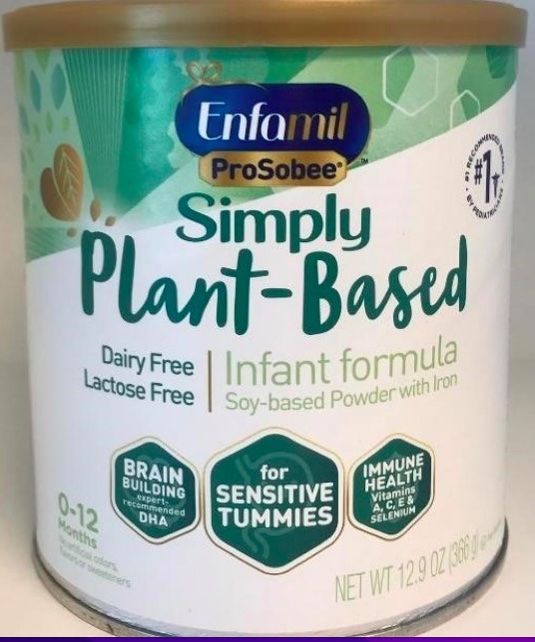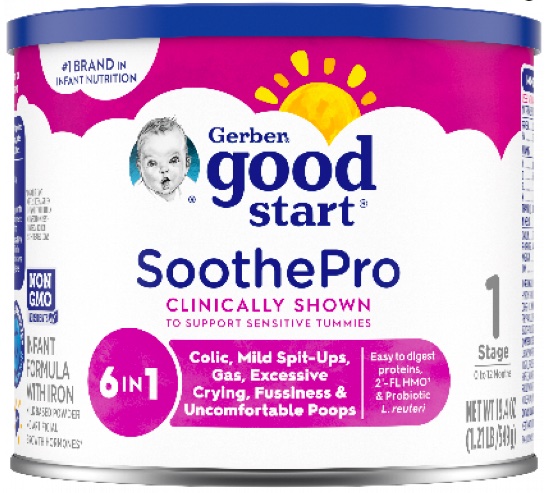After three companies issued Cronobacter infant formula recalls, the U.S. Food and Drug Administration (FDA) inspected their facilities and issued warning letters for violations of the Federal Food, Drug, and Cosmetic Act (FD&C Act) and the FDA’s Infant Formula regulations.
Warnings Follow Similac Recall and Investigation
The recalls by Perrigo, Mead Johnson, and ByHeart were issued about a year after Abbott Nutrition recalled Similac, Alimentum, and EleCare after illnesses and deaths were reported among infants who consumed those powdered infant formulas. The recalled Similac, Alimentum, and EleCare formulas were all manufactured at Abbott Nutrition’s plant in Sturgis, MI where 40 percent of the nation’s baby formula is made.
When FDA inspectors found multiple strains of Cronobacter and numerous food safety violations there, it prompted a months-long closure of the plant, exacerbating a nationwide baby formula shortage. The findings also triggered a federal criminal probe.
Cronobacter Illnesses Were Not Reportable or Notifiable
Throughout the investigation of illnesses reported among infants who consumed Similac, the cases were characterized as “rare” because only a handful are reported to the Centers for Disease Control and Prevention (CDC) each year. But it’s important to note that Cronobacter is not a notifiable disease, so state health departments aren’t required to track illnesses and report them to the CDC. Only one state, Minnesota, ever has.
But that’s about to change.
Classifying illnesses from various pathogens as reportable helps health officials understand how disease occurs and identify outbreaks. For example, Illnesses from bacteria such as E. coli, Salmonella, Listeria, and Vibrio are all reportable. Cronobacter isn’t mainly because it doesn’t pose a health threat to the general population. Most adults don’t get sick from Cronobacter. But babies do and the primary vehicle of transmission is powdered infant formula.
Cronobacter bacteria live on dry foods. Unlike liquid formula, powdered infant formula cannot be made sterile using current manufacturing processes. And it only takes a small amount of Cronobacter to cause severe, sometimes fatal illness.
In the wake of the Similac investigation, the Council of State and Territorial Epidemiologists, the professional association that advises the CDC on which diseases should be nationally notifiable recommended that Cronobacter be added to the list. The recommendation is expected to be approved later this year and take effect in 2024.

FDA Letter to the Powdered Infant Formula Industry
In March 2023, the FDA published a letter to the Powdered Infant Formula Industry calling for enhanced safety measures. The letter, addressing all manufacturers, packers, distributors, exporters, importers, and retailers asked them to:
- Evaluate established system of production
- Ensure full compliance with all relevant regulations
- Ensure adherence to the notification requirement of an adulterated or misbranded infant formula any time product has left the facility
- Voluntarily report any time a product has tested positive for Cronobacter or Salmonella, even if it was not distributed
- Consider the concerns when evaluating your established system:
- Controlling water in dry production areas
- Verifying the effectiveness of controls through environmental monitoring
- Implementing appropriate corrective actions following the isolation of a pathogen from
an environmental sample or a product sample - Implementing effective supply-chain controls for biological hazards
- Identifying all relevant biological hazards
Three Infant Formula Cronobacter Recalls and Warning Letters
In warning letters to all three companies, the FDA stated: “You should take prompt action to correct the violations noted in this letter. Failure to do so may result in legal action by the FDA without further notice, including, without limitation, seizure and injunction.”
ByHeart Inc., ByHeart Whole Nutrition Recall, Warning Letter
ByHeart Whole Nutrition Recall
In December 2022, ByHeart Inc. issued a recall for five batches of Whole Nutrition Infant Formula for potential Cronobacter contamination risk. The recall was not related to the company’s facility in Reading, PA, but to a third-party packager that provides final canning for the company.

ByHeart Warning Letter
In a warning letter dated August 30, the FDA states that from December 21, 2022, through February 17, 2023, it inspected the ByHeart facility located in the 19606 zip code of Pennsylvania where it found “significant violations.”
The facility was cited for failure to :
- “Establish a system of process controls covering all stages of processing that was designed to ensure that infant formula does not become adulterated due to the presence of microorganisms in the formula or in the processing environment“
In one case, the FDA determined through its records review that some batches of potentially contaminated formula entered commerce, a violation of the law.
A leaky skylight and a faulty seal that allowed moisture to enter a drying tower were mentioned with a reminder that, “wet conditions – such as those areas of a manufacturing plant where water occasionally wets the area, either intentionally as part of wet cleaning, or inadvertently as the result of leaking pipes or valves or roofs – are especially favorable for the growth of Cronobacter.”
Mead Johnson, Enfamil ProSobee Recall, Warning Letter
Enfamil ProSobee Recall
In February 2023, Mead Johnson (Reckitt) issued a recall for Enfamil ProSobee infant formula for Cronobacter risk. (In 2017, Reckitt Benckiser Group acquired Mead Johnson.)
The recall included two batches, about 145,000 cans, of Enfamil ProSobee Simply Plant-Based Infant Formula:
- Sold in 12.9 oz containers
- Manufactured between August 2022 and September 2022
- Batch codes ZL2HZF or ZL2HZZ
- UPC code 300871214415
- “Use By Date” of “1 Mar 2024.”

Reckitt/Mead Johnson Warning Letter
According to the FDA’s warning letter to Reckitt/Mead Johnson dated August 30, 2023, the agency inspected two of the company’s manufacturing facilities, one in Zeeland, Michigan, the other in Wanamingo, Minnesota. Investigators found “significant violations” at both locations.
Both facilities were cited for failure to:
- “Establish a system of process controls covering all stages of processing that was designed to ensure that infant formula does not become adulterated due to the presence of microorganisms in the formula or in the processing environment“
- “Ensure that equipment and utensils used in the manufacture, processing, packing, or holding of an infant formula were of appropriate design and were installed to facilitate their intended function and their cleaning and maintenance“
In the letter, the agency details the company’s failure to properly examine, document, and mitigate the source of contamination after Cronobacter was detected in finished product at each facility. In one case, the FDA determined through its records review that some batches of potentially contaminated formula entered commerce, a violation of the law.
Perrigo Recall and Warning Letter
Perrigo Recall
On March 17, 2023, Perrigo Company PLC issued a Cronobcater recall for certain lots of Gerber Good Start SoothePro Powdered Infant Formula in the U.S.
The recall included Gerber Good Start Soothe Pro products, sold in 12.4-oz have the following product information:
- 300357651Z – USE BY 04JUL2024
- 300457651Z – USE BY 05JUL2024
- 300557651Z – USE BY 06JUL2024
- 300557652Z – USE BY 06JUL2024
- 300757651Z – USE BY 08JUL2024
- 300857651Z – USE BY 09JUL2024
- 301057651Z – USE BY 11JUL2024
- 301057652Z – USE BY 11JUL2024
- 301157651Z – USE BY 12JUL2024

Perrigo Warning Letter
The Perrigo Company PLC purchased the U.S. and Canadian rights to the Good Start infant formula brands and the facility in Eau Claire, Wisconsin, where they are made, known as the Gateway facility, from Nestle on November 1, 2022. In its warning letter to Perrigo, dated August 30, the FDA cited the company’s failure to
- “Establish a system of process controls covering all stages of processing that was designed to ensure that infant formula does not become adulterated due to the presence of microorganisms in the formula or in the processing environment“
The letter runs through four occasions where Cronobacter was found in finished product and how the company’s root-cause analysis of each event was insufficient. Specifically, the company’s failure to perform whole genome sequencing on Cronobacter isolates removed the potential to determine if the same strain was linked to multiple events and what role the facility may be playing in the contamination of the product.
In one case, the FDA determined through its records review that some batches of potentially contaminated formula entered commerce, a violation of the law.
Cronobacter was also detected in the facility during the FDA inspection conducted on March 7, 2023, and March 8, 2023. The bacteria was also detected during a 2022 inspection of the facility.
The two 2023 environmental samples were two different strains of Cronobacter and both of them were found during the 2022 inspection. “The presence of the same strains of [Cronobacter] over this period of time is indicative of resident pathogens or harborage sites in your facility since 2022,” the letter states. “We advised you of the importance of these WGS results via a conference call on April 4, 2023.”